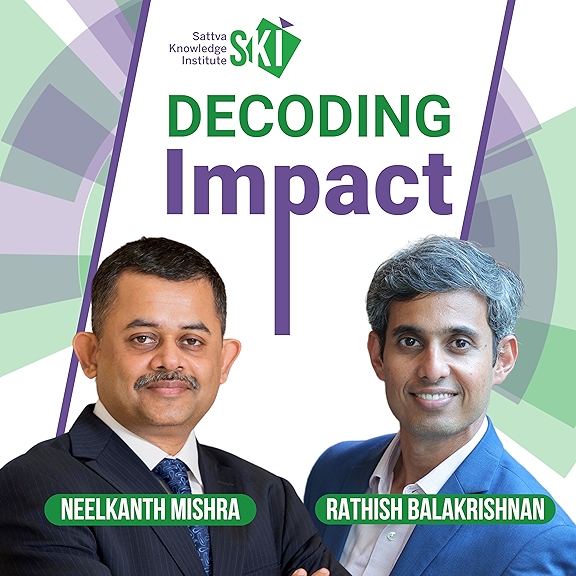10-10-2023
Decoding a Life Cycle Approach to Mental Health with Dr. Pratima Murthy
India is grappling with a severe mental health crisis, with over 197 million Indians diagnosed with mental disorders, exacerbated by a wide treatment gap. The good news is that there is growing recognition of the importance of mental health in the country. However, a thorough understanding of what it entails, what forms mental well-being takes, how it should be approached and conceptualised, is lacking.
Mental well-being is intertwined with economic, cultural, social and other factors at various stages of an individual’s life. Effective interventions, therefore, should be contextualised to these aspects. How can public policy, market solutions and community solutions be designed with these in mind?
Joining us on World Mental Health Day to share her reflections on making mental health a key part of India’s development agenda, is Dr Pratima Murthy. Dr. Murthy is the Director of NIMHANS, where she has been pivotal in initiating Tele Manas, and establishing the state-of-the-art Centre for Addiction. She has also worked with the National Human Rights Commission to improve care for persons with mental illness.
For more, follow Sattva Knowledge Institute on our Website, LinkedIn, Instagram, and Twitter.
Host: Rathish Balakrishnan | Linkedin | Twitter
Guest: Dr. Pratima Murthy | Linkedin
Producer: Meenakshi Iyer
Audio Engineer & Editor: Abhilash Raikar
Designer: Usha Sondhi Kundu
Content Sections:
00:48 Introduction to the topic and guest
02:14 Why is mental well-being critical?
04:17 Recognising interconnections
08:10 Vocabulary and mental models
12:22 Context-specific intervention design
15:38 Designing population-scale interventions
23:11 Perinatal well-being
26:06 Mental health in schools
36:01 Mental health in workplaces
39:42 Prisons as a crucial locus
44:55 Mental health for the elderly
47:54 Improving access to care
51:41 Designing mental well-being models
58:22 Recommendations for philanthropy
1:02:15 Summary and Outro




















